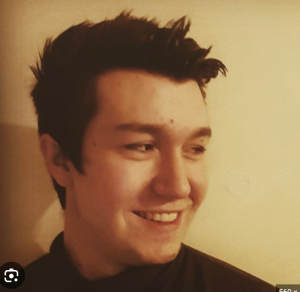- Dr Sam Hutton (Director Mind’s Eye Research Ltd, former UK/EU Operations Manager, SR Research, Eye Link)
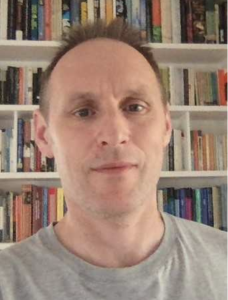
I have known Dr Crawford for over 25 years, and, like so many other researchers, during that time I have benefited enormously from his guidance and expertise. We first met at Charing Cross Hospital in the mid 1990’s, where he was already carrying out pioneering research investigating oculomotor abnormalities in neuropsychiatric patients. In those times eye tracking was a very niche area, and the equipment available required very high levels of skill to operate. As a new post-doc, with no prior experience of eye tracking, Dr Crawford was an outstanding mentor to me. He taught me the fundamental principles of search coil and infrared limbus tracking techniques, as well as how to design eye tracking experiments and analyse gaze data – all with great care and patience. It has been a genuine privilege throughout my career to be able to boast that I learned eye tracking from one of the field’s most outstanding scientists. Dr Crawford was also one of the first researchers to understand the power of eye tracking to explore the cognitive consequences of neurological and psychiatric disorders. His deep understanding of the relationship between visual attention and oculomotor control informs all of his research efforts, and this approach has proven to be very influential to an entire generation of researchers. His current research program continues this tradition, and will continue to deliver profound insights into a wide range of important topics – from identifying early signs of dementia, to understanding the impact of carbon monoxide on cognition.
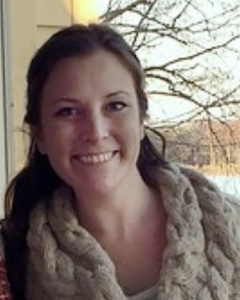
About 3 years ago, Trevor and I put in a bid together for funding to the NWSSDTC for a 3+1 MSc and PhD combined studentship. We were successful and as such, we have been co-supervising a PhD student for the past 2 ½ years. As a junior member of staff, I have learned a great deal from working with Trevor, not only on how to write a successful bid, but to how to effectively guide and manage post graduate students to optimise their prospects for a successful career. Aside from working together with a student, Trevor is an amazing colleague and collaborator. He is my “go to” for advice, and we have several projects together with his international collaborators (projects which he invited me to join to which I am very grateful). Trevor is extremely intelligent, supportive and a natural leader. I can positively say that my experience in Lancaster would not have been as positive or productive had I not had Trevor’s mentorship. Indeed, we are all lucky to have him here.
- Dr Thom Wilcockson (Senior Lecturer in Psychology, Loughborough University)
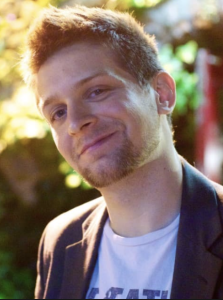
Dr Trevor Crawford excels at creating a vibrant friendly atmosphere of excellence and productivity. He encourages all he works with to work to the best of their abilities in a warm and gentle manner. People want to work with Trevor because he is an expert, but also because he is a friend. I cannot speak highly enough of Trevor. The way that he gets the best out of people is really incredible. When working for Trevor, myself and others always gave 110% because of his ability to motivate and encourage. The research Trevor and his teams conduct is of an exceptional world-leading standard.
Trevor was integral to my development as an early career researcher. Trevor provided numerous opportunities for my development and always placed a great deal of importance on my own personal development. I learnt a massive amount from Trevor. Trevor helped me develop numerous aspects of my career. Trevor is an absolute expert in the field of cognitive neuropsychology and I benefitted from his expertise. Trevor assisted me with grant applications, sign-posted training which he felt would be beneficial, and taught me a lot about and guided me through NHS ethical procedures. Trevor always listened and allowed me to voice my own ideas, whilst providing feedback. Trevor was much more than a supervisor: he was also the architect of my whole future career. I am forever in Trevor’s debt: the skills I learnt, the opportunities he enabled, everything. Trevor has had such a massive positive impact on my career. I cannot speak highly enough of him. Working with Trevor was an absolute delight. Even after leaving Trevor’s lab, Trevor still provides me with support and guidance.
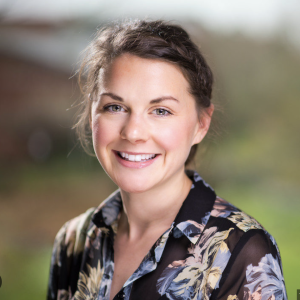
At the end of my Psychology degree at Lancaster University, we were encouraged to speak to members of the department about our grades. I happened to go to Trevor’s office and upon giving my name he recognised me and said, ‘you wrote an excellent essay for my module’. At the time, this meant a lot to me and the interaction has always remained with me. I start with this because it demonstrates not only Trevor’s warm and supportive manner, but that Trevor places a great deal of care in how he engages with all students; as someone who has the ability to inspire and motivate others. Trevor supervised me through my MSc in Psychological Research Methods dissertation and my PhD at Lancaster University. During this time, in addition to providing the academic and pastoral support for my post-graduate degrees, Trevor always motivated and supported me in taking opportunities to develop myself and my research career such as writing publications and attending national and international conferences. During my time as a post-graduate, Trevor led and provided an enriching and positive ‘research lab’ environment for myself and other post-graduate students working within the same area, where we had regular meetings discussing papers, practising presentations or problem solving our own experimental designs and/or data. Trevor also organised a number of eye-tracking training sessions and workshops enabling us as individuals to enhance and develop our specialist skills and knowledge, but also to foster the strength of the lab. Trevor continually encouraged all of his students to reach their academic potential. But importantly, he saw us all as people too and recognised the importance of us developing a healthy and holistic lifestyle. I feel this is a valuable trait of a leader and important to success in life – it has certainly helped me achieve in my own. With the research skills I developed through working with Trevor, and the guidance he provided, I successfully continued in my academic career, obtaining a two-year post-doctoral position followed by a lectureship. I have not yet been fortunate to have a PhD student, but Trevor has provided me with an excellent model of the role of a supervisor.

Trevor Crawford supported me a lot when I was a research fellow and when I became a lecturer, even though he was not my line manager or official mentor. He helped me develop a better understanding of the skills needed to be a successful academic: not just the technical aspects, but the social. He is always open to long chats about psychological theory and methodology. He is also very supportive at a personal level and has good advice on work-life balance. We started collaborating on student projects first and our work grew from there. We are now co-supervisors on two NWSSDTP funded PhD studentships, submitted a grant proposal, have one paper published and are working on several others. Not bad for a collaboration that started with Trevor just asking what my work was on, when I was a fresh-faced research fellow!

Dr Trevor Crawford acted as my second Supervisor during my PhD at Lancaster University and is now a collaborator on multiple research projects and an academic mentor for me as an early-career researcher. In addition to providing me with the support required to carry out doctoral research and successfully submit within 3-years, Trevor also provided me with unparalleled opportunities to develop myself as an early career researcher; giving me the skills required to continue my career development as a post-doctoral researcher at the University of Cambridge.
Trevor provided me with the opportunity to develop, analyse and write my first publication in Frontiers in Human Neuroscience and has continued to contribute to two more publications and three manuscripts in preparation. One of which is a continued collaboration exploring the predictive mechanisms of psychosis. Dr Trevor Crawford has provided support and assistance in my continued research training by providing the opportunity to visit Kuopio, Finland, and Lisbon, Portugal to gain further neuroscience training, as well as support in presenting my research at numerous national and international conferences. Two presentations to note were a visit to The University of Bonn where Trevor and I visited Dr Ulrich Ettinger to discuss our current research and to give me the opportunity to present to his Lab, who shared similar research interests and provided me with the opportunity to discuss my thesis. Secondly was the opportunity to present my first publication at an Experimental Psychology Society conference in London, which has now allowed me, with Trevor’s nomination, to become a postgraduate member of the society.
Trevor and I have worked together for a number of years now and plan to continue our collaborations further, through the development of more research publications in the realm of our joint interests, and in terms of future grant plans, which will extend and develop the ideas born out of my PhD research. Trevor has gone above and beyond his care of duty as a PhD Supervisor, now academic mentor and professional friend as I continue my career in academia. He has provided me with brilliant career development advice, which assisted in my current research associate placement, as well as opportunities I would not have had or taken if not nudged by him.
- Dr. Donna Berry (Psychology Lecturer, Keele University)

I started my journey into Psychology as an Undergraduate at Lancaster in 2001, and still remember Dr Trevor Crawford’s lectures as my first introduction to neuropsychology. He presented what I feared would be very difficult topics in such an accessible and engaging way that I went on to complete my MSc dissertation under Trevor’s supervision, and then my PhD. I have Trevor to thank, not only for developing my subject knowledge around biological, cognitive, and atypical psychology from his research papers and his teaching, but also for developing my research and teaching skills, and for developing my passion for academic psychology and confidence to pursue this. Throughout my MSc and PhD, Trevor mentored me as I learned how to programme eye trackers, how to navigate ethical issues, and how to frame and present research studies in conference presentations and journal articles. Trevor encouraged me to present at numerous national and international conferences, and it was with Trevor’s support that I was able to secure my first grant: a Grindley Grant to cover conference attendance from the Experimental Psychology Society. Trevor was always incredibly supportive during research meetings, and made me feel that I was able to contribute to discussions, which built up my confidence as I struggled with imposter syndrome as a first generation university attendee. I now have a number of poster presentations, talks, and a paper with Trevor under my belt, and I was so inspired by Trevor that I went on to become a Lecturer in Psychology at Keele University, and a Higher Education Academy Teaching Fellow, specialising in teaching eye tracking methods, ethics, and cognitive neuropsychology! I’m striving to pass on Trevor’s remarkable research contribution to cognitive neuropsychology by teaching my students about his research, but I’m also striving to pass on the enthusiasm, patience, and kindness that he showed to me, to the next generation of psychology students. Given the impact that Trevor has had on me, which has been career and life-defining, and the legacy that he will leave as I share what I learned from him to new cohorts of students.
- Dr. Clare Kelly (NHS Clinical Psychologist)
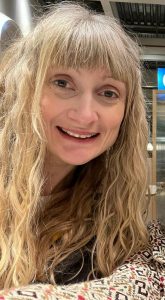
Dr Trevor Crawford supervised me during both my Master’s and PhD Degrees at Lancaster University. He also provided me with the opportunity to work on the MoDEM project and develop my clinical research experience and overall career in Psychology. Since leaving his Lab, he has provided me with ongoing career support and guidance.
Trevor was an incredibly supportive Supervisor and I learned a great deal from him. With his considerable knowledge and expertise, he consistently supported me with psychological research skills and training in eye tracking technology. He provided me with the opportunity to develop as a researcher through attending and presenting at conferences and training days. He also supported me with publications in the journals PLoS One, Psychophysiology and Frontiers in Aging Neuroscience. Trevor listened and provided constructive feedback and would consistently be available for supervision and additional support with my work when needed.
Trevor is a natural leader with a clear passion for research. It is evident from working with Trevor, that he cares about the students and colleagues he supervises and works with and encourages them to reach their potential, by identifying gaps in their academic, clinical and/or research experience. Trevor has had such a positive impact on my career in Psychology and I would not be on the path I am today without his consistent support and encouragement. He is a pleasure to work with and I wish to take this opportunity to thank him for all his support.
- Dr Steve Higham (President, MAC Clinical Research)
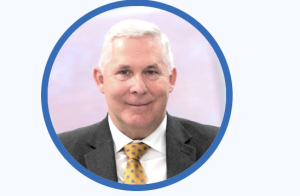
I have known Trevor Crawford for over 20 years, including working together for 6 years in the Psychology Department at Lancaster University. Trevor was also my PhD supervisor and I feel that I could not have wished for a better person to help guide me and work with through my PhD. Trevor was always very supportive, empathetic and able to arrange time to see me to discuss my work. Trevor is a consummate professional of impeccable character and over the years I have been very grateful to have experienced, his tremendous mentoring abilities, excellent leadership skills and good nature. We have worked together on many projects and journal articles and I am proud to have worked with someone with such great knowledge, creativity and insight. I have always found Trevor to be completely dependable and I do believe that his support and guidance and our time spent working together, certainly helped me considerably in the long term, to establish my own professional career.
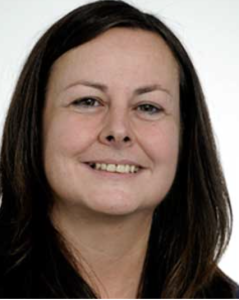
I was appointed as Lecturer in 2003. Trevor and I met regularly to discuss research ideas and I was appreciative of his welcoming and collegiate approach. With his enthusiastic support we linked up with neurologists at the Royal Preston Hospital and initiated a new programme of research into psychosocial factors in relation to Parkinson disease. This included funded PhD & MSC projects and a series of highly cited publications. Trevor has also served as an internal examiner on the DClinPsy course in FHM. This support early on in my career at Lancaster has been much appreciated and has contributed to my promotion to SL and professor.
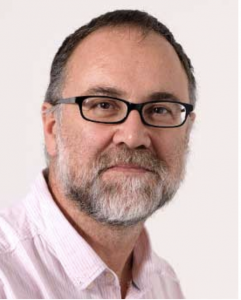
I met Trevor Crawford shortly after I arrived at Lancaster University to take up a post as Senior Lecturer in Department of Biochemistry in 1998, due to our shared interest in Dementia. Shortly afterwards, we started a collaboration with a clinical team and lay volunteers at the Royal Lytham Hospital, to develop novel diagnostic markers and new treatments for Alzheimer’s disease. We started the ‘Lancashire Interest in Dementia Research’ group with Dr Ted Renvoize, which met once a month at Lytham Hospital, where we gave regular research talks and developed research proposals. We were successful at obtaining funding from The Sir John Fisher foundation, and have been funded by them continuously for the last 13 years, as follows:
- 2009-2018 Sir John Fisher Foundation (with Trevor Crawford, Psychology) on ‘Longitudinal investigation of novel biomarkers and the effects of anti-dementia treatments for Alzheimer’s disease’, £380,000.
- 2016-2019 Sir John Fisher Foundation (with Trevor Crawford, Psychology), funds for two 3-year PhD studentships on Alzheimer’s disease, £240,000
- 2019-2022 Sir John Fisher Foundation (with Trevor Crawford, Psychology), funds for two 3-year PhD studentships to work on projects related to dementia, £200,000
The initial research phase funded 4 PhD and PDRA students, and resulted in high impact publications and further national and international grants over this period. This laid the ground work for our current collaboration which has been funding PhD studentships. I am extremely grateful to Trevor who has taken the lead role in obtaining this funding. This funding has contributed to the following publications arising from my lab:-
- Hammond, J., Maher, B. A., Gonet, T., Bautista, F., & Allsop, D. (2022). Oxidative Stress, Cytotoxic and Inflammatory Effects of Urban Ultrafine Road-Deposited Dust from the UK and Mexico in Human Epithelial Lung (Calu-3) Cells. Antioxidants, 11(9), [1814]. https://doi.org/10.3390/antiox11091814
- Hammond, J., Maher, B., Ahmed, I., & Allsop, D. (2021). Variation in the concentration and regional distribution of magnetic nanoparticles in human brains, with and without Alzheimer’s disease, from the UK. Scientific Reports, 11, [9363]. https://doi.org/10.1038/s41598-021-88725-3
- Tabner B.J., Mayes J. & Allsop D. (2011) Hypothesis: soluble oligomers in association with redox-active metal ions are the optimal generators of reactive oxygen species in Alzheimer’s disease. Int. J. Alzheimer’s Disease 2011, Article ID 546380, doi:10.4061/2011/546380
- Masad A., Tabner B.J., Mayes J. & Allsop D. (2011) The amylin peptide implicated in type 2 diabetes stimulates copper-mediated carbonyl group and ascorbate radical formation. Free Radical Biol. Med. 51, 869-875.
- Tabner, B., Moore, S., Mayes, J., Allsop, D. 2013 In: Brain diseases and metalloproteins. A possible key role for redox-active metal ions and soluble oligomers in neurodegenerative diseases. Boca Raton, Fla.: Pan Stanford p. 11-32. 22 p. ISBN: 978-981-4316-01-9. Electronic ISBN: 978-981-4364-07-2
- Tinker-Mill C., Mayes J., Allsop D. & Kolosov, O.V. (2014) Ultrasonic force microscopy for nanomechanical characterization of early and late-stage amyloid-β peptide aggregation. Scientific Reports 4, 4004; doi:10.1038/srep04004.
- Mayes J., Tinker-Mill C., Kolosov O., Zhang H., Tabner B.J. & Allsop D. (2014) β-Amyloid fibrils in Alzheimer disease are not inert when bound to copper ions but can degrade hydrogen peroxide and generate reactive oxygen species. J. Biol. Chem. 289, 12052-12062.
- Allsop D. & Mayes J. (2014) Amyloid-β protein and Alzheimer’s disease. Essays in Biochem. 56, 99-110.
Trevor is also very collegiate and has contributed to my undergraduate course on neurodegenerative diseases. It has been a pleasure to work with him over many years.

I have had the pleasure of being a PhD and previously MSc Student under the exceptional supervision of Dr Trevor Crawford for the past three years. Not only is Trevor an exceptional academic who inspires me to achieve academic success in the domain of cognitive neuropsychology daily. He is also an extremely conscientious diligent supervisor who holds his student’s health and wellbeing with equal regard to their academic successes. This combination of academic rigour combined with conscientiousness I believe makes Trevor an excellent supervisor.
Throughout the duration of both my Msc and PhD thus far Trevor has provided me with countless opportunities and opened the world of academia to me. Perhaps most notably Trevor has facilitated a long standing collaborative project with Associate Professor Jeffrey Hamm from the University of Auckland NZ, a leading psychophysicist with a keen interest for attentional visual illusions. Trevor has worked with Jeffrey for many years on an outstandingly robust visual illusion. Through this academic collaboration we have been able to combine Trevor and my own experiences with Parkinson’s Disease with Jeffrey’s psychophysics experience to develop a series of highly novel high impact studies. Without Trevor’s connection this would have not been possible. Additionally, Trevor has facilitated an early link between myself and the highly prestigious OXQUIP research laboratory who aim to develop effective tests of Parkinson’s. The two circumstances highlighted above are just two of the very many collaborative opportunities and conferences Trevor has facilitated my engagement in throughout the duration of my PhD. Without a shadow of a doubt Trevor has been an exceptional supervisor and is an exceptional academic. The time and passion he dedicates to his work and is second to none.
- Radek Winzca (PhD Student, Lancaster University)

My PhD journey started amid a global pandemic in 2020, arguably not a great time to start any project. However, being supervised by Trevor made the transition from an MSc to a PhD much smoother. Also, his pastoral skills helped me to make it through the ‘COVID years’ and settle in Lancaster well, something that would have been much harder without his positive attitude. Trevor is also always willing to provide support, whether it is providing feedback for a paper I wrote or a grant application, something that helped me a lot during my PhD.
The many coffee meetings at Pizzetta have shown to be invaluable to my PhD journey; we developed countless great research ideas; most of which became a reality within a short period of time. His bright mind quickly connects the dots, that others do not see, which has made a significant contribution to improving my research, and most importantly, the way I think about research.
Trevor’s positive attitude and warmth enabled him to establish connections across the world, something that I have hugely benefitted from. Trevor was able to pair me with researchers who share similar interests, which has greatly improved my PhD experience and my overall development. His extensive knowledge of the field and academia, helped me to reach out for things that I would otherwise be unaware of, like potential grant providers. Thanks to Trevor, when I leave Lancaster University, I will be well-equipped with international connections and practical knowledge that will benefit me in the future.
Put simply, Trevor is a great supervisor and companion in any research pursuits, and a wonderful person to spend time with (and a very skillful golfer!).
- Lettie Wareing ESRC (PhD Student, Lancaster University)
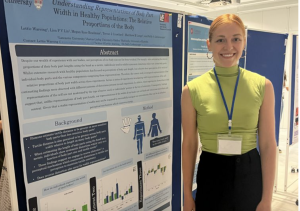
I have worked with Trevor since the end of my 2nd year when he became my supervisor for 3rd year dissertation. It was in one of my meetings about my dissertation that I mentioned to Trevor my desire to do a PhD and that I had seen some funding I would like to apply for. Trevor was hugely encouraging of this idea and put me in touch with one of his PhD students who also had the same funding so that I could find out more. From here, this developed into me obtaining an internship in the Perception and Action Lab at Lancaster University where I was able to develop the skills and knowledge needed to apply for a PhD. Trevor was invaluable in supporting me with applying for my PhD and, with the support of Trevor and my other supervisors, I was able to secure the funding for my project, which Trevor now co-supervises me on. Throughout my PhD, Trevor has provided me with many opportunities to network and foster research collaborations with other leading researchers in their field and their supervisory students. He shows incredible passion for his work and is always keen to discuss new ideas and papers which, in turn, fosters my own passion for research and the field. I feel incredibly lucky to have Trevor as my supervisor and I know that I would not have had nearly as much success thus far in my PhD without his support.
- Dr Stacey Humphries (Lecturer in Psychology, Goldsmith College, University of London)
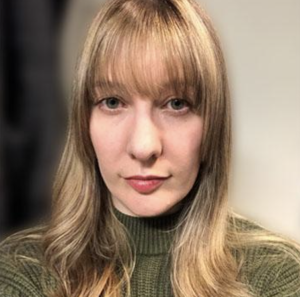
I have known Trevor for 8 years, first in his capacity as one of my PhD supervisors and now as a continuing collaborator and mentor. He has always supported my professional development and academic success and I feel very fortunate to have benefitted from his mentorship. I completed my PhD in Psychology at the University of Manchester from 2012 to 2016, which involved me working with Parkinson’s disease patients for the first time. As someone with a huge amount of experience in neuropsychology, ageing, and Parkinson’s research, Trevor’s advice and guidance were invaluable to me throughout my PhD. He advised me on issues relating to cognition in Parkinson’s disease, experimental design and statistical analysis, and always provided regular, constructive feedback on my written work. While completing a PhD is a challenging time for most people, I faced significant additional difficulties during mine. I lost my mother to cancer in the first year of my PhD and needed to take an interruption to my studies. Trevor was in regular contact with me throughout this period and made very clear that my focus should be on taking care of myself and my family. I will always remember that his warmth, kindness and patience made it much easier for me to get back on track when I returned.
I have co-authored two high-quality publications with Trevor. One was published in Cortex in 2016, and the other was recently accepted at the Journal of Experimental Psychology: General. A third manuscript is currently in preparation. After completing my PhD, I took up a postdoctoral position at the University of Pennsylvania, USA. In the last year – an extremely challenging year to be on the job market – I began applying for permanent lectureship positions. Trevor has been very supportive throughout this time and has always been quick to offer me his advice when I needed it. I was fortunate to be offered a lectureship at Goldsmiths, University of London, which I will take up in April. I very much look forward to continuing to work with Trevor going forward.
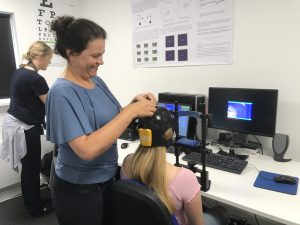
I am a Senior Lecturer based in Lancaster Medical School and can say without hesitation I would not have been able to achieve this position without the opportunities, mentorship and consistent support provided by Trevor. I have known Trevor since 2004 when I first took up a Research Assistant role in the Psychology department at Lancaster, although it was not until 2009 that I began to work on research questions that falls within Trevor’s arena of expertise. At the time I was in my second year of an MRC/ESRC interdisciplinary PhD on childhood epilepsies. Trevor was already an internationally recognized expert in neuropsychology, and I was keen to be able to extend my research work into this arena. I understood from others in my PhD cohort that Trevor was a great supervisor and so I wished to also seek out his mentorship.
Trevor has always had an ‘open door’ (physically and metaphorically) for all students, including those who wish to develop skills in his area, and I was fortunate to be able to join is graduate research lab group. Trevor was keen to hear my research ideas and encouraged me to pursue my interests. Importantly, he allowed me access to his lab and resources even though he could not receive any formal recognition from the department as I was formally supervised by two other members of staff. The opportunity to be part of a supportive and exciting research lab environment was an influential factor in my decision to pursue a research career in the long term. My PhD topic addressed neurological disorders, and Trevor made sure that I had an audience with key clinicians in the field to help develop my career. Indeed, Trevor’s support continued beyond the PhD whilst I was working in different fixed term roles in the Psychology department, and he was clearly a highly skilled and valued colleague. An excellent and committed mentor and colleague, who many times went above and beyond to help me and for which I am very grateful. I am sure all of his students past and present would agree.
- Sophie Green (NHS Clinical Psychologist, Lancaster University)
Dr Crawford has helped guide me in my studies and career from undergraduate psychology student to my current role as Trainee Clinical Psychologist at Lancaster University. During my undergraduate degree Dr Crawford was my allocated dissertation tutor, in this role I found that he was always willing to give his time to supervision, whether face-to-face or over email, was willing to take the time to properly explore research ideas, supported me in critical thinking, encouraged me to work with appropriate independence and ultimately increased my confidence as a researcher. His approachable and easy to engage style enabled my confidence to grow and made me feel like an equal in our research supervision and helped me to develop ownership over my research project. Following my undergraduate degree Dr Crawford remained an influential mentor in my pursuit of clinical psychology training, continually checking in with my progress, arranging informal meetings, offering feedback on job applications and being a fantastic reference. I feel that for me personally he has gone above and beyond his initial role as a dissertation tutor to support me, not only during my undergraduate studies but also and post graduate work life and current doctoral training. His encouragement and continued belief in my abilities has no doubt influenced where I am in my own career today and the skills that I learnt during my undergraduate supervision continue to serve me well during my doctoral thesis now.
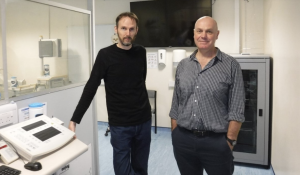
I first encountered Trevor while working as a researcher in the Computing Department at Lancaster University around 2004. I was managing an interactions lab, and Trevor sought me out for access to a new eye tracker the lab had just received. After some stimulating meetings in his office, I ended up writing eye tracking control software some of the diverse experiments he was leading with his research team. Trevor introduced me to an exciting and rewarding multi-disciplinary research area, trying to address real-world clinical issues, that impact people’s lives.
Trevor is great and connecting you with the right people, just when you need it. Through Trevor, I made connections with other members of the Psychology Department at Lancaster. and was able to help them create software to collect and analysis data from several experiments, including for MRes and PhD students, resulting in several publications. I particularly enjoyed working with Trevor and his team in the friendly and inclusive research environment that he created. Thanks to Trevor I was also fortunate to meet David Manning, from what was to become the University of Cumbria. Trevor was helping David with eye tracking experiments relating to medical image perception – using eye tracking to monitor observers looking at complex medical images. Their enthusiasm led me to undertake a PhD in this area, with Trevor and David becoming my PhD supervisors. I research and publish medical image perception work today, and I owe a lot to those initial meetings with Trevor. It changed my career.

I have known Trevor since 2003, initially as co-supervisor for my PhD research and then as collaborator on a number of research projects. Throughout this time Trevor has had a huge impact on our medical imaging research by ensuring our eye tracking studies were always conducted with rigour and underpinned by an experimental psychology approach. Trevor has an international reputation in eye movement research and has been instrumental in promoting our research to key academics in the field and helping us participate in important conferences such as the European Conference on Eye Movements (ECEM). His advice on equipment in helping us set up our eye-tracking laboratory at Cumbria has been invaluable. His collaborative approach has resulted in a good number of joint authored publications.
On a personal note, I completed my PhD in 2008 and took a short sabbatical from my teaching role to focus on continuing eye-tracking research. Trevor arranged a visiting research fellowship for me at Lancaster in your laboratory, and this period was fundamental in helping me focus on research subsequently in my career.

In the early years of working with Dr Crawford, I expressed my interest to pursue a career in research and to complete a PhD. Dr Crawford was fully supportive of this and continually offered valuable advice on the best way to achieve this goal. Dr Crawford offered guidance on applications for both the academic program and funding opportunities, which I feel I would not have successfully accomplished without Dr Crawford’s expertise, support and encouragement.
During the time I have had the pleasure of working with Dr Crawford, he has provided me with multiple opportunities to grow and expand my research skills and experience. I feel I have been well supported and guided by Dr Crawford’s expertise while also having the freedom to explore my own research interests and ideas. Dr Crawford has always been reliable, dependable and consistent with meetings resulting in continued and steady progress of my PhD. In recent months, Dr Crawford has guided me through the process of publishing multiple Journal articles. His expertise on the submission and review process was invaluable and lead to the articles being published in reputable journals and has provided me with the skills necessary for future successful publications. Dr Crawford is supportive, knowledgeable and is always keen to offer guidance when needed while also promoting independence.
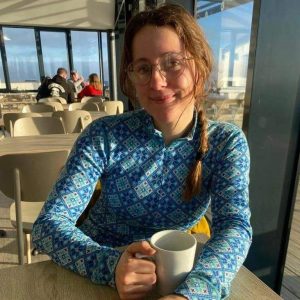
Alex Devereaux (former Research Assistant, Lancaster University)
